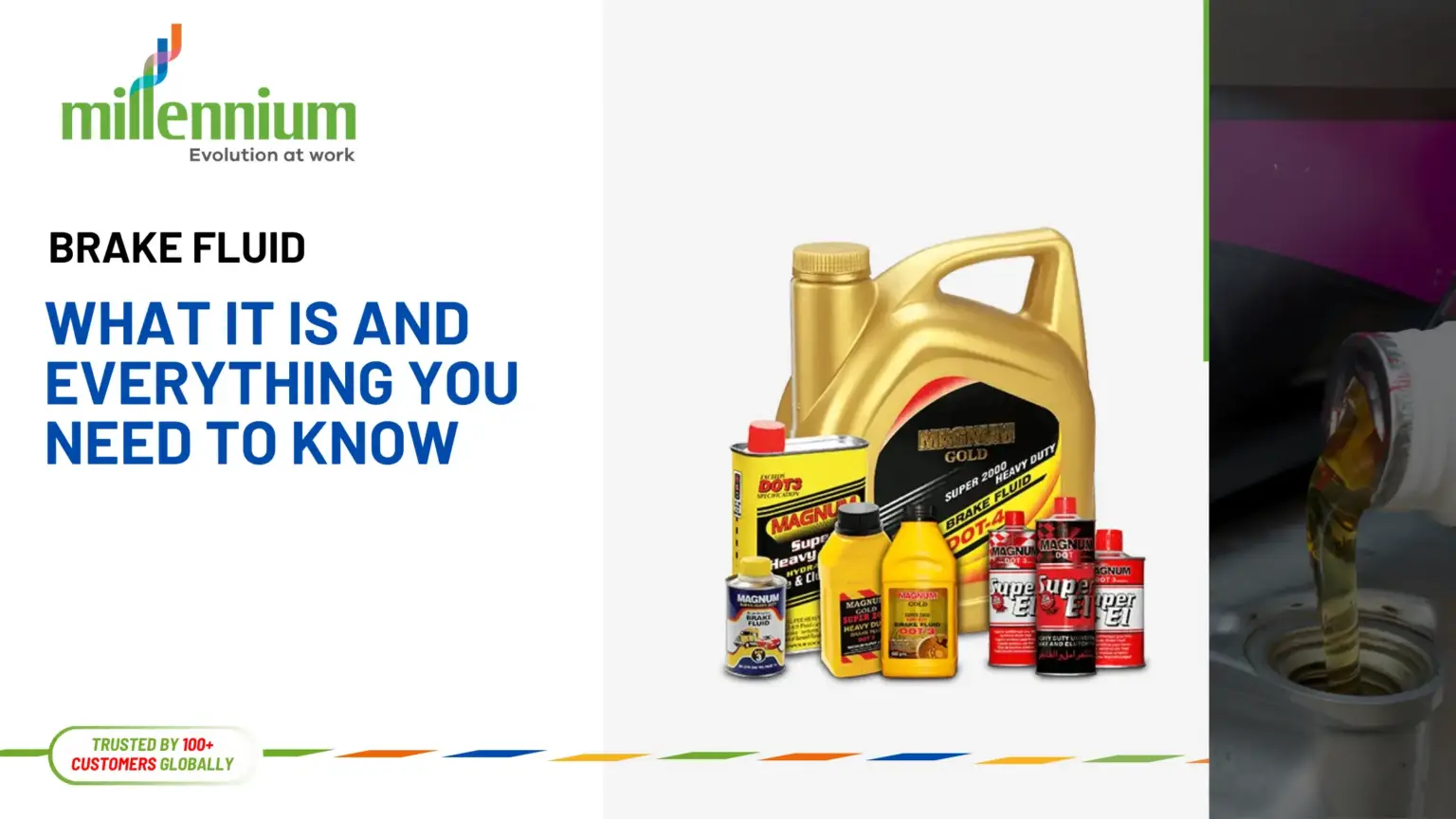What Is Brake Fluid?
Brake fluid is a specialized hydraulic fluid used in the brake system of automobiles to facilitate the transfer of force created when a driver presses the brake pedal into the pressure needed to bring the vehicle to a halt. It is a crucial component in any braking system as it plays a pivotal role in ensuring that the vehicle can stop safely and effectively.
By acting as a medium for transmitting the force applied by the driver, brake fluid allows the brake components, such as calipers and wheel cylinders, to generate enough friction against the brake rotors or drums, ultimately decelerating the vehicle.
The importance of brake fluid lies in its ability to maintain its properties under high temperature and pressure conditions that are typical during vehicle operation. As the brake is applied repeatedly, the components can heat up significantly, requiring the brake fluid to maintain its consistency without boiling or vaporizing. Due to its specific formulation, brake fluid has a high boiling point that helps it remain effective, even when subjected to intense heat generated by the braking system.
The Importance & Function Of Brake Fluid
Brake fluid is a critical component in a vehicle’s braking system, serving as the lifeblood that enables effective and safe braking. Its primary function is to transfer the force exerted by the driver’s foot on the brake pedal into pressure on the brake pads or drums, ultimately bringing the vehicle to a stop. This hydraulic fluid is indispensable in ensuring that the braking system responds promptly and efficiently to the driver’s actions.
The importance & function of brake fluid lies in its ability to withstand extremely high temperatures and pressures generated during braking. As brakes are applied, the friction generates heat, and brake fluid must maintain its integrity and operational characteristics without boiling or freezing, which could lead to vapor lock or diminished braking capacity. It also serves a secondary role as a corrosion inhibitor, protecting the metal components of the braking system from moisture that can lead to rust and degradation.
How Does Brake Fluid Work?
Brake fluid is a crucial component of a vehicle’s braking system, serving as the essential hydraulic medium that transmits force when the brake pedal is pressed. When you step on the brake pedal, it engages the brake master cylinder, which is filled with brake fluid. This action generates hydraulic pressure within the brake lines, transferring that pressure equally through the brake fluid to the brake components at each wheel.
The pressure created is what actuates the brake calipers or wheel cylinders at the wheels, forcing the brake pads or shoes against the rotors or drums. This contact creates the friction necessary to slow down or stop the vehicle.
Brake fluid must have specific properties to function effectively in this high-pressure and high-temperature environment. It must remain incompressible to ensure consistent force transmission. Additionally, it needs to have a very high boiling point to prevent it from vaporizing under the extreme heat generated by braking. Any vaporization or compressibility would lead to a spongy brake pedal and a loss of braking efficiency, which could be dangerous.
Understanding Different Types Of Brake Fluid
Brake fluid is a crucial component in a vehicle’s braking system, ensuring that the braking mechanism functions smoothly and efficiently. Understanding the different types of brake fluid is vital for maintaining optimal performance and safety. There are several types of brake fluid, primarily distinguished by their chemical compositions and boiling points. The most common brake fluids are DOT 3, DOT 4, DOT 5, and DOT 5.1.
DOT 3 and DOT 4 brake fluids are glycol-based, which means they tend to absorb moisture from the environment, leading to a decrease in boiling point over time. This characteristic necessitates regular checks and replacements to prevent brake failure from vapor lock, especially under high-performance conditions. DOT 4 fluid generally has a higher boiling point than DOT 3, making it suitable for vehicles with more demanding braking requirements.
On the other hand, DOT 5 brake fluid is silicone-based and does not absorb water, which provides stable performance across various conditions. However, it is incompatible with anti-lock brake systems (ABS) due to its compressibility. DOT 5.1 is another glycol-based fluid similar in composition to DOT 4 but with a higher boiling point, providing superior performance in high-stress environments. Selecting the right brake fluid involves understanding these differences to ensure compatibility with the vehicle’s braking system and to preserve the system’s integrity and safety.
Top Brake Fluids In The Market
When it comes to selecting the best brake fluid for your vehicle, quality and performance are paramount. The brake fluid market offers several top-performing options that cater to diverse vehicle needs and driving conditions. Notable among these is the Castrol React SRF Racing Brake Fluid, which is renowned for its exceptional high-temperature performance and resistance to vapor lock, making it a favorite among performance enthusiasts and professional racers.
Another standout product is ATE Type 200, which combines a high boiling point with excellent water absorption prevention, ensuring reliable performance even under demanding conditions. This fluid is ideal for both everyday driving and track use.
Valvoline’s DOT 3 and DOT 4 Brake Fluids are also highly praised for their consistent performance and wide availability, offering great protection against corrosion and maintaining a high boiling point to prevent brake fade. These are often recommended for drivers looking for reliable and affordable options for their daily vehicles. Motul’s RBF 600 Factory Line is another top contender, often chosen for its outstanding moisture resistance and temperature endurance, which are crucial for maintaining optimal braking performance during extreme conditions.
Why Is Understanding Brake Fluid Important To Your Car?
Understanding brake fluid is crucial for the overall safety and performance of a vehicle. Brake fluid is an essential component of the braking system, responsible for transferring the force created by pressing the brake pedal into pressure, amplifying it to bring the car to a stop. Without it, the braking system would fail to function effectively, leading to potentially dangerous situations on the road.
Ensuring that the brake fluid is maintained in good condition is vital for the reliability of the braking system.
As brake fluid ages, it can absorb moisture from the environment, leading to a decrease in its boiling point. This can result in a phenomenon known as “brake fade,” where the braking efficiency diminishes when the brakes are used extensively, such as during a long downhill drive. Furthermore, old or contaminated brake fluid can cause corrosion within the brake system, potentially damaging key components like calipers and cylinders.




